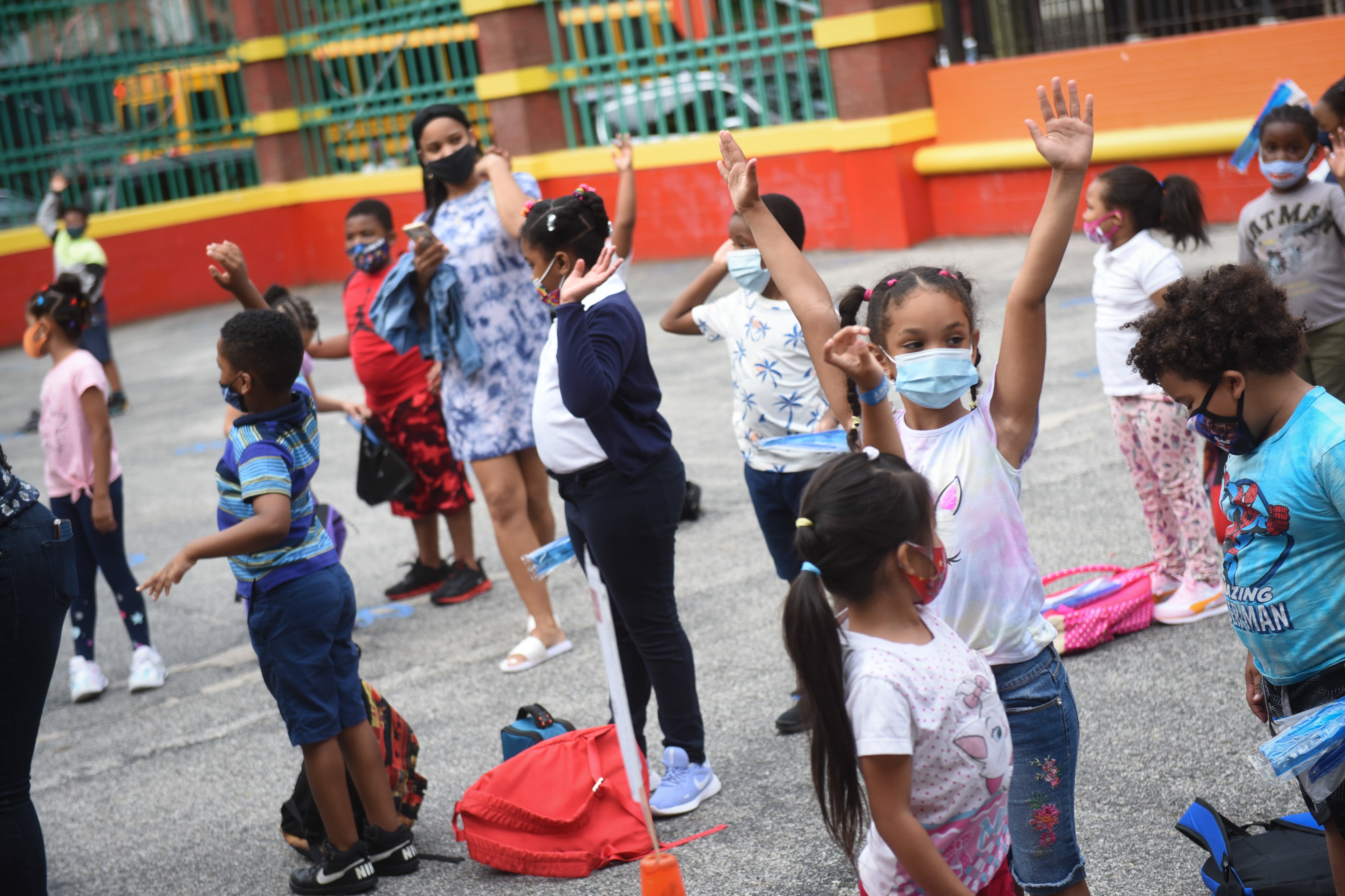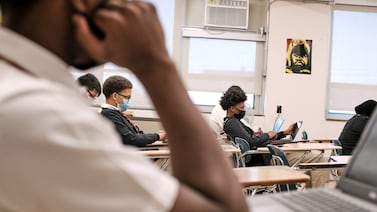Just one week after New York City opened up applications for Summer Rising, its ambitious program that melds academics and camp-like activities, most elementary school sites have already filled up.
Of 267 schools offering K-5 programs, fewer than 30 still had openings, according to the education department’s enrollment portal as of Monday afternoon.
This is only the second time that the city has opened its revamped summer program to all students, not just those who are struggling with coursework. Mornings will focus on academics led by education department teachers. The afternoons will offer enrichment such as field trips, art activities, and outdoor games run by community organizations.
The $350 million program offers 110,000 seats for elementary and middle school students in charter schools or traditional public schools. The city serves about 682,000 children in those grades, according to state data. The seats are first-come, first-served, with no waitlists. (Separately, former Mayor Michael Bloomberg recently donated $50 million for charter schools to run their own programs.)
Education department officials were excited to see the “immense interest” in this year’s summer program, but because of staffing constraints are not planning to add more seats.
“In order to maintain student safety, we are unable to add seats to Summer Rising sites at this time,” education department spokesperson Jenna Lyle said in a statement.
Additionally, the program gives priority to students in temporary housing and those with disabilities who are mandated to attend school year-round. Schools are also holding spaces for students who are required to attend for academic purposes.
High schools will offer separate programs for students needing to retake courses, and the city is offering 100,000 slots for young people ages 14-21 in its summer jobs program.
Here’s what families should know about Summer Rising:
What are the dates and hours?
The seven-week elementary school program runs from July 5 through Aug. 19 and is being offered at 267 schools across the city.
The six-week program for middle school runs from July 5 through Aug. 12, with nearly 230 schools offering seats for grades 6-8, with some of those campuses also offering K-5 seats.
Both programs run until 6 p.m.
Can my children attend their own school for Summer Rising? If not, what are other options?
Not all schools are hosting Summer Rising programs in their buildings, but all schools are affiliated with a school that is. Your child’s school is supposed to provide you with the name of the building that is partnering with your child’s school. Most seats, however, have already been snatched up, so options are limited.
Unlike last year, the new enrollment portal will only let families sign up for one program per child rather than allow multiple applications. You’ll know immediately if a site is booked since it won’t appear on the drop-down screen when you go to the enrollment page. (The list of participating schools can be found here.)
Last summer, the program got off to a rocky start, with glitches in the online signup portal and unregistered children showing up at sites, which resulted in students sitting in auditoriums for the first few days at some schools as enrollment issues were sorted out.
What if my child has special needs? What kind of accommodations will there be?
The city is aiming to improve on last summer’s performance, when some community-based organizations lacked staff like paraprofessionals to support certain students.
The city has increased training for people from organizations running enrichment programs. The city also will allow time during the summer for those staffers to learn from teachers how to support students with disabilities. City officials also promised more information soon about how they will better support students needing paraprofessional or nursing support to fully participate in both academic and enrichment programs.
“There’s been a more intentional push to include students with disabilities. If this was a normal time, it would be fine, but staffing overall is a big concern,” said Nora Moran of United Neighborhood Houses, an umbrella organization for community-based organizations. “Providers have had a hard time staffing their school-year after-school programs this year; they want to serve this population but need the right staffing and resources to do so.”
At 80 sites, the city is co-locating programs for students in District 75, which serves those with the most significant needs, with programs serving typically developing students. The program for students with disabilities ends at 2:30 p.m., and then those students may join afternoon enrichment programs. Staffers from afternoon programs will be in the classroom with special education teachers in the morning, to learn how to support students.
My child gets bused to school. Will Summer Rising offer busing?
Transportation was a major issue last summer for children who rely on busing during the school year, including those with disabilities or students in temporary housing. Some students who rode the bus in the morning had no bus ride home in the afternoon. The city eventually offered to pick up the tab for car services, but advocates stressed that many working families don’t have time to use the services, which require a caregiver to accompany a student.
“For many parents, it is not possible to transport their child with significant disabilities to and from their school,” said Randi Levine, from Advocates for Children. “We know many students with disabilities last year were unable to participate in the Summer Rising afternoon activities due to lack of bus service.”
City officials said that they will offer busing to eligible students through 3 p.m, and are working on options for children staying until 6 p.m.
“Unfortunately, operational constraints make wide-scale busing at 6 p.m. a significant challenge,” the education department’s website says.
Officials are exploring prepaid rideshare or taxi service, including vehicles that are wheelchair accessible.
Alex Zimmerman contributed reporting.
Amy Zimmer is the bureau chief for Chalkbeat New York. Contact Amy at azimmer@chalkbeat.org.








